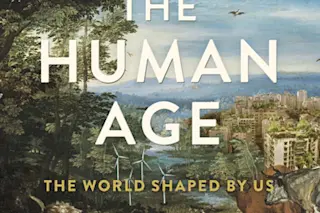Today is a good time to be alive when compared to any in human history, such as 100 years ago, when the average life span in industrial countries was about 50. As one recent science article noted,
the key in driving up our collective age lies with the advent of medical technologies, improved nutrition, higher education, better housing and several other improvements to the overall standards of living.
Although our improved health and longevity are due to science, we moderns in the industrial world increasingly blame diseases (some that are wholly psychosomatic) on technologies that we owe our less-diseased, better-living lives to. What many of us are most afflicted with today are assorted fears and dreads stemming from the very advances that have made us the wealthiest, healthiest humans of all time. Perhaps the only thing that doesn't give us cancer is irony. Some of us, for example, are being ...



